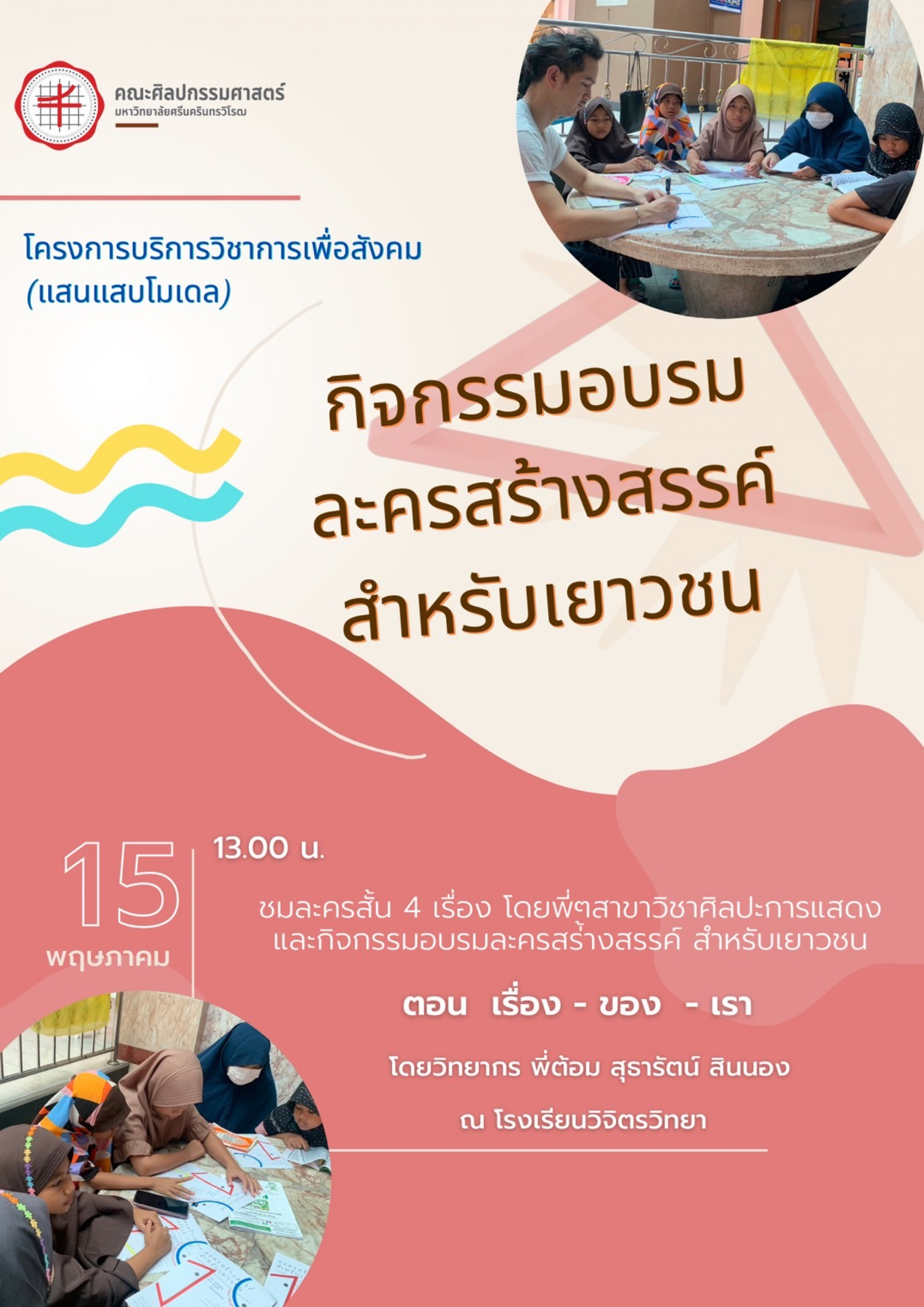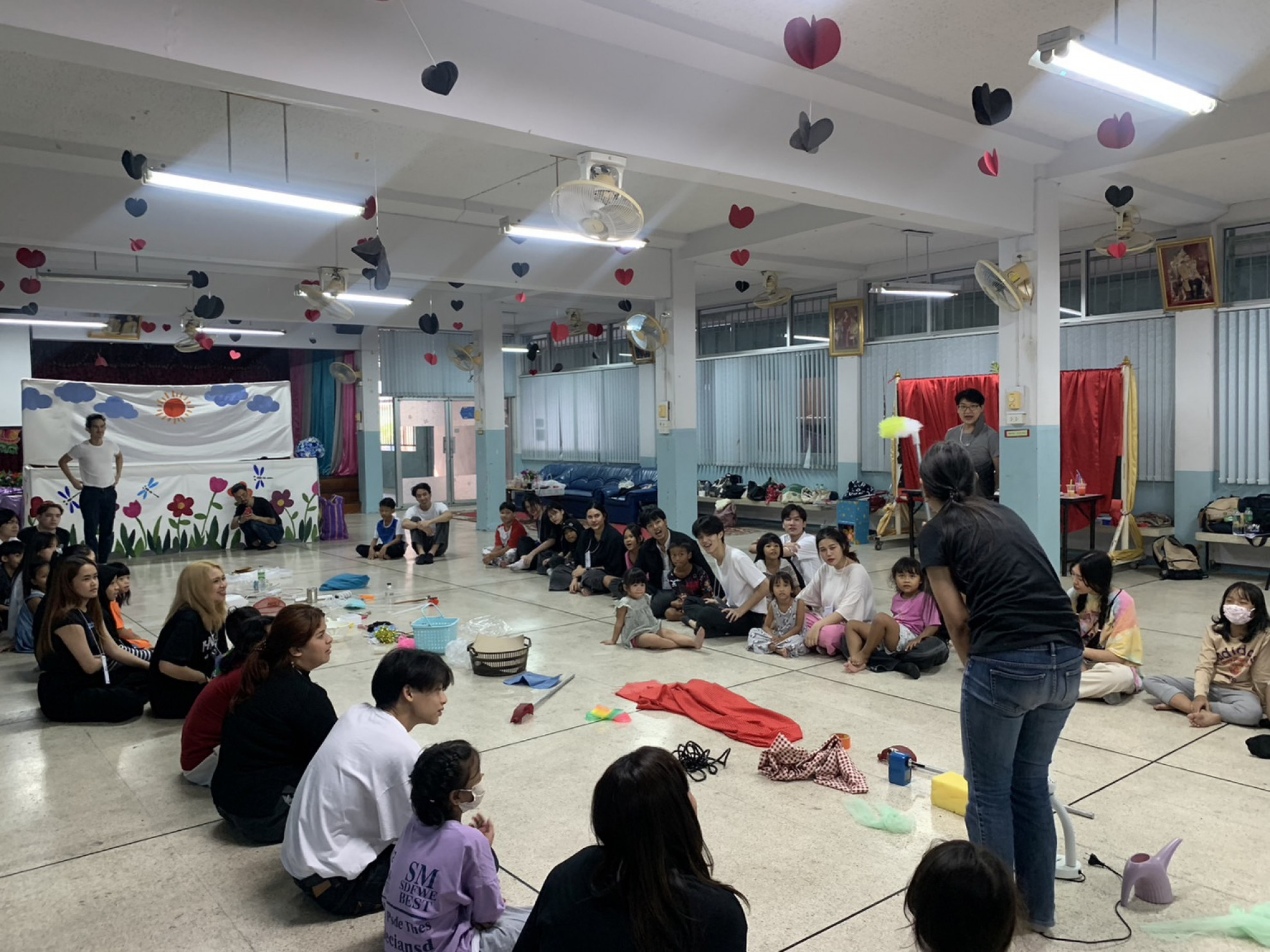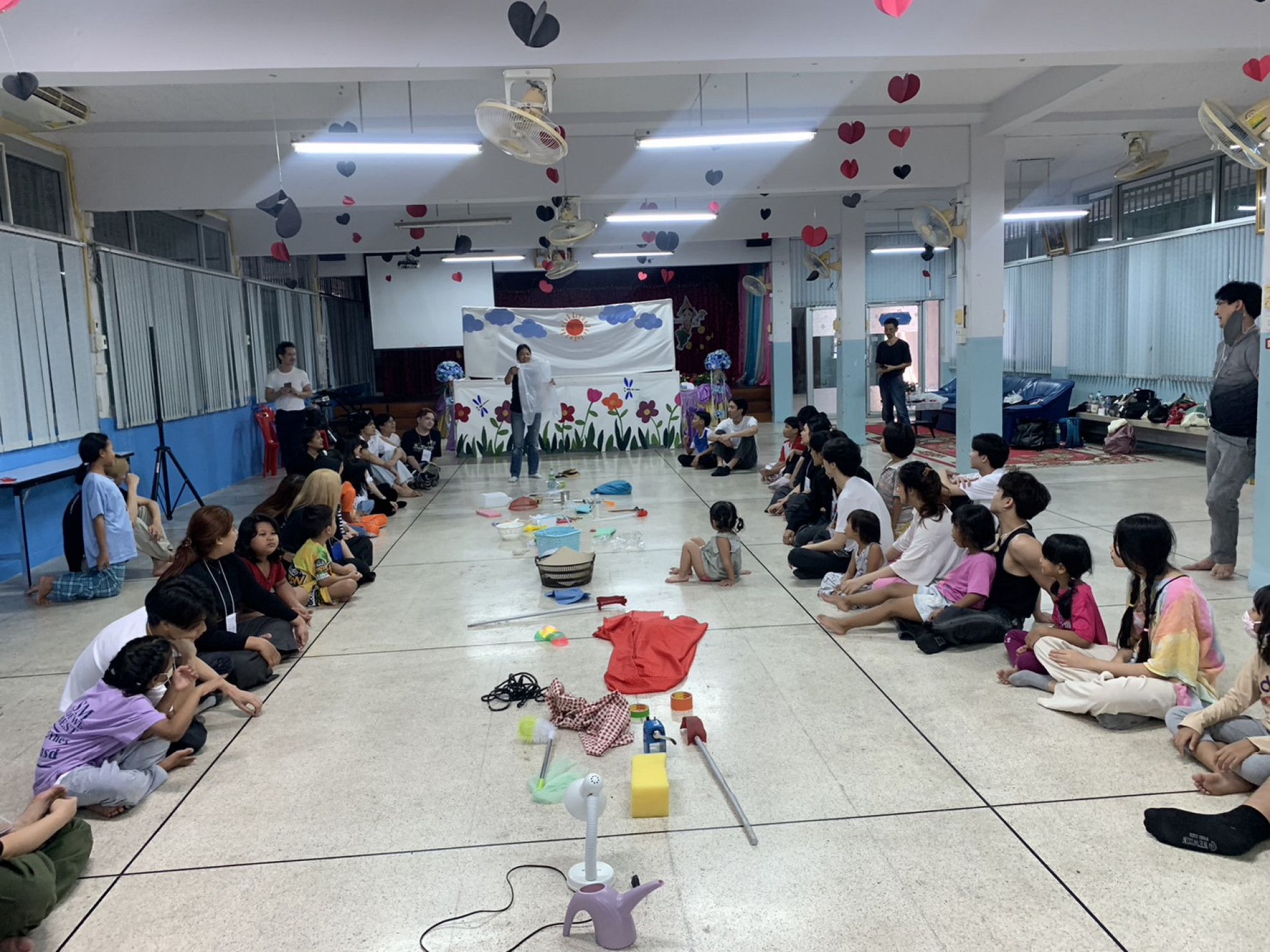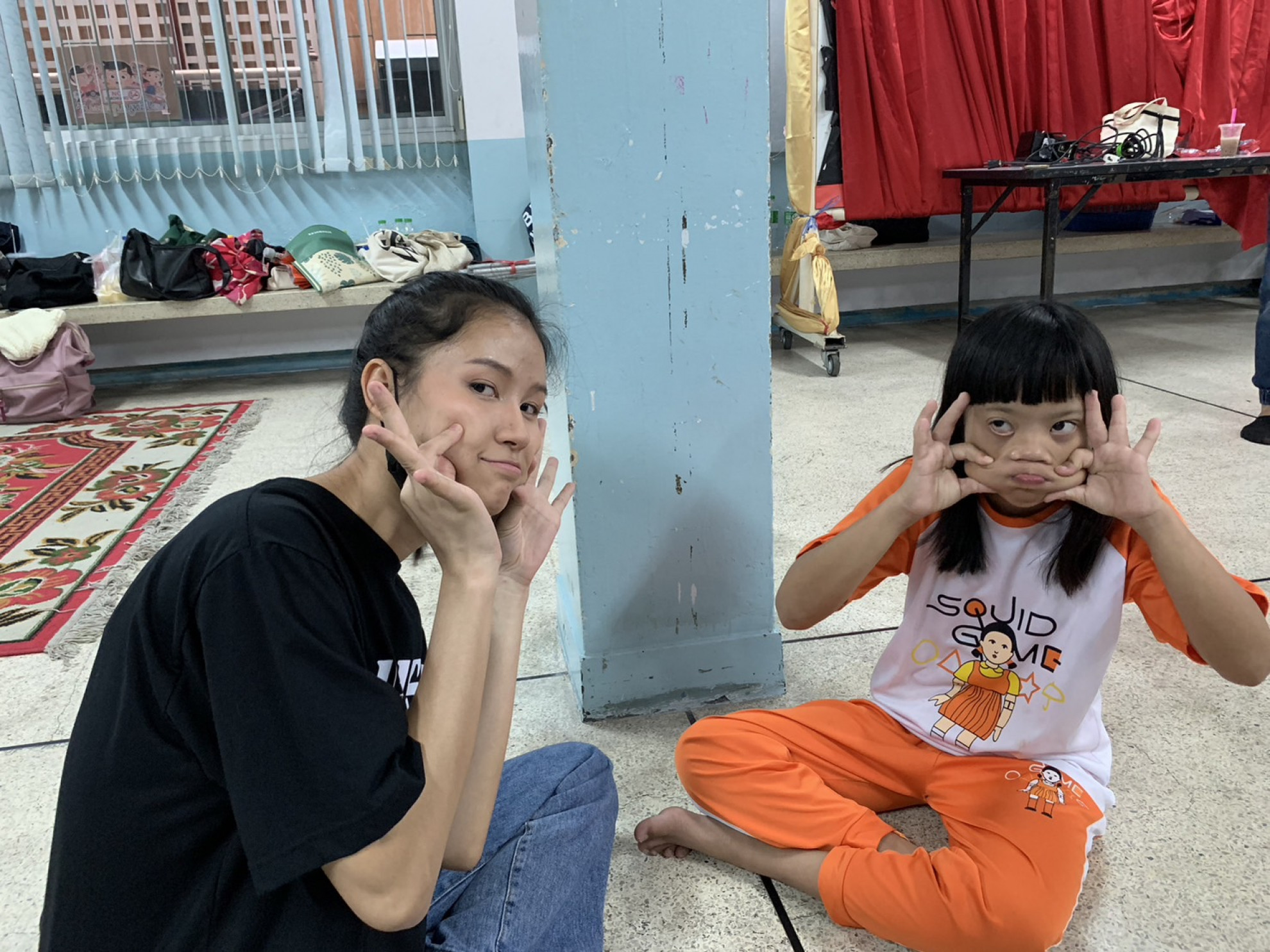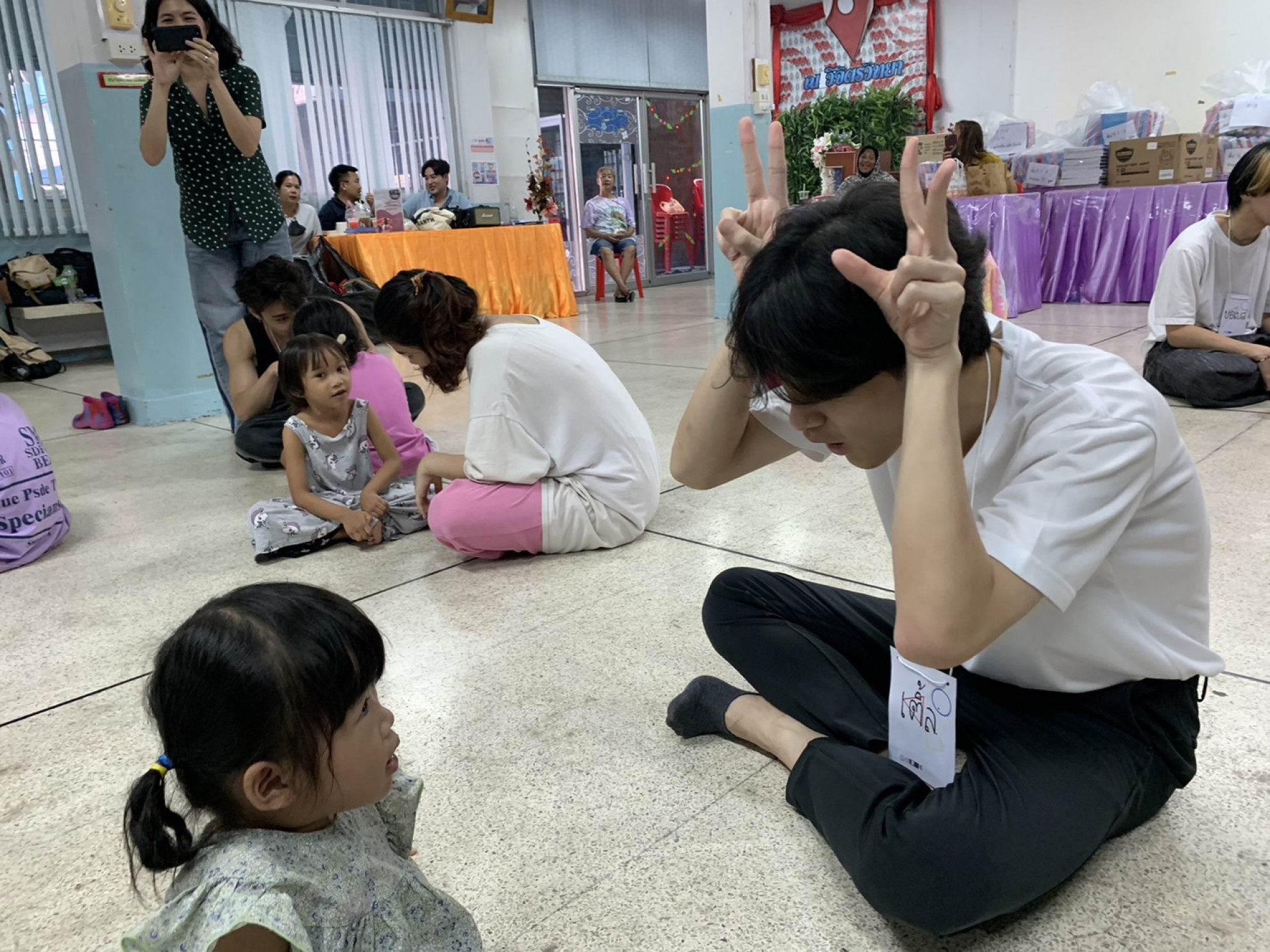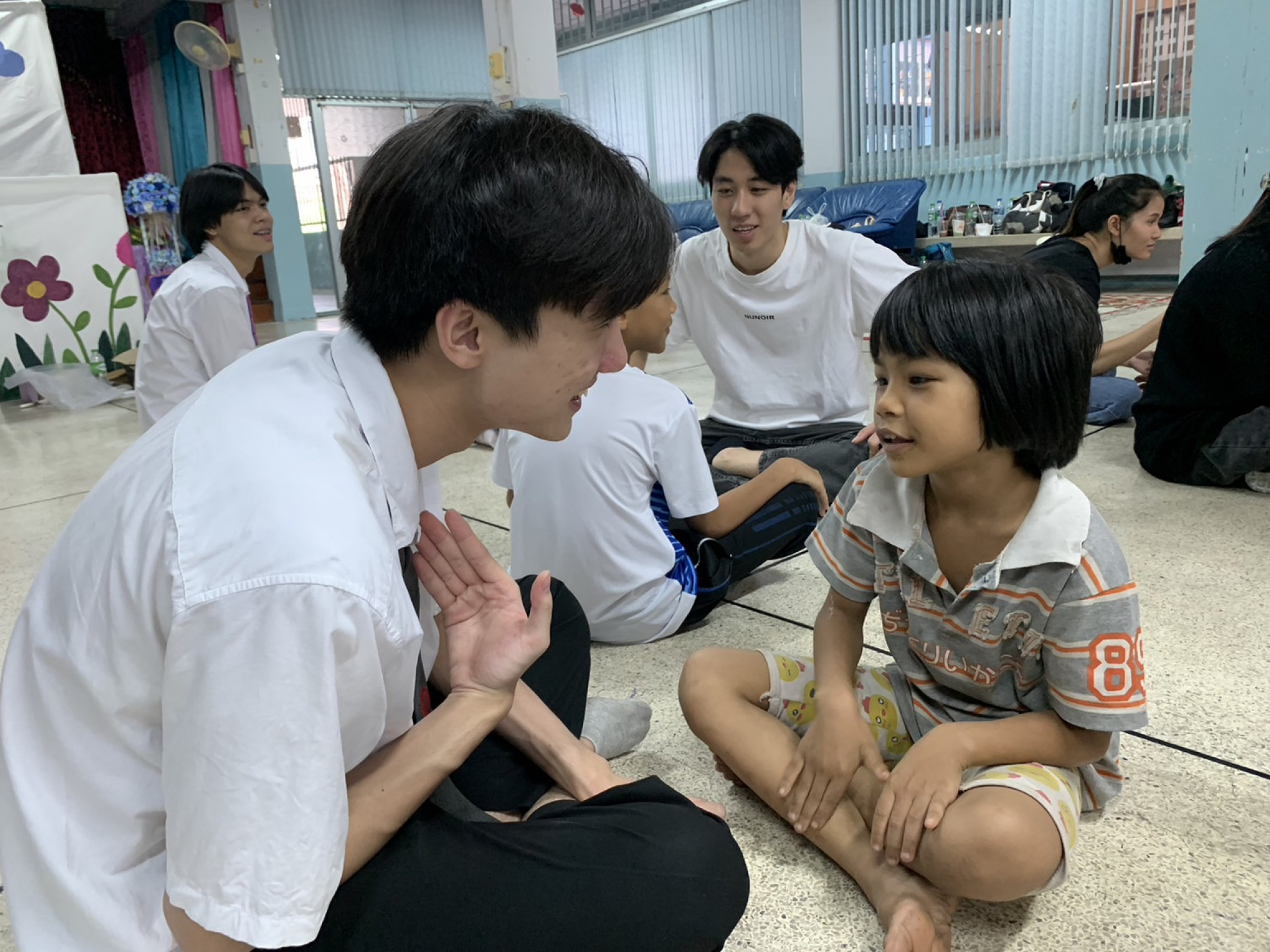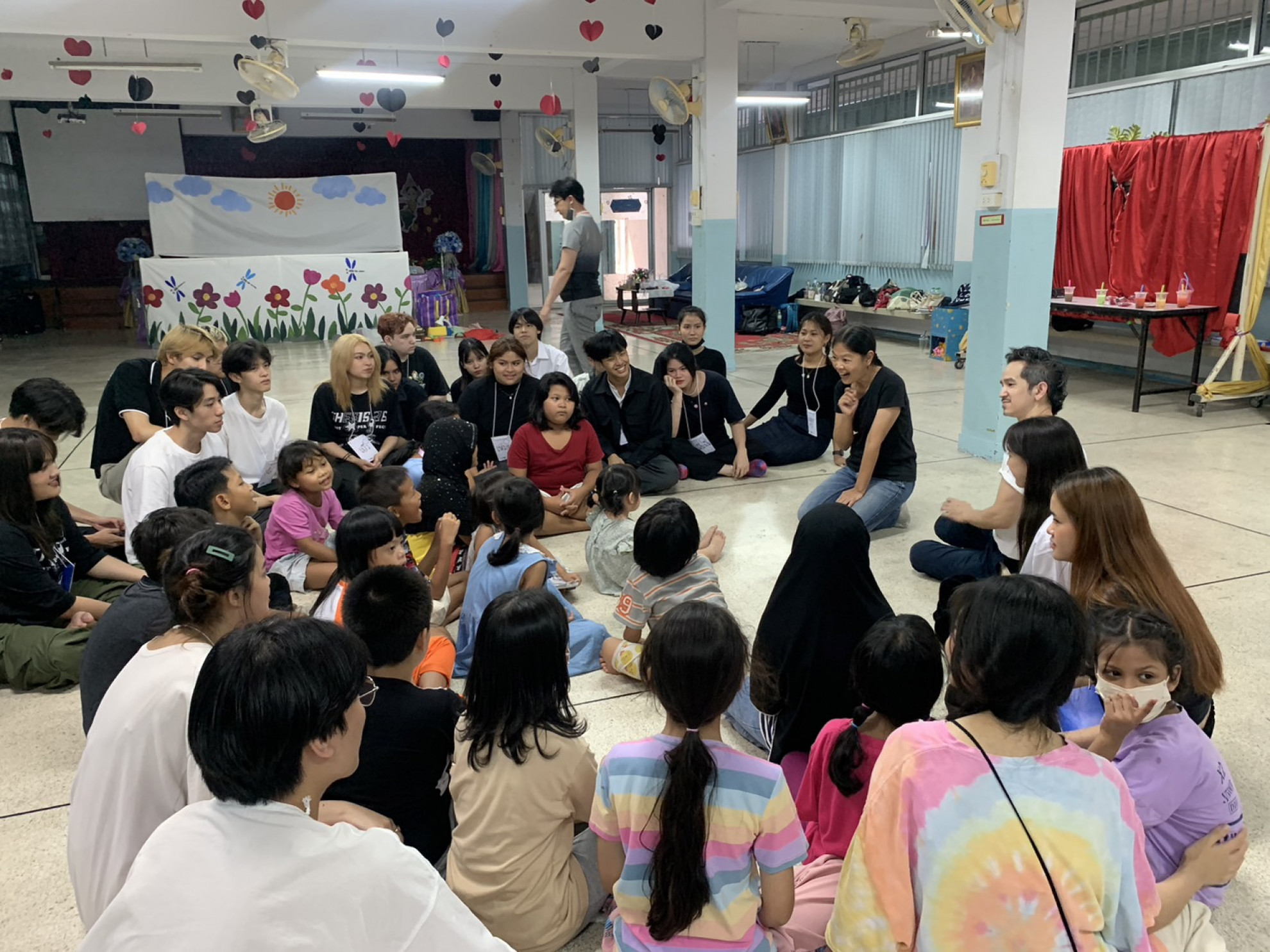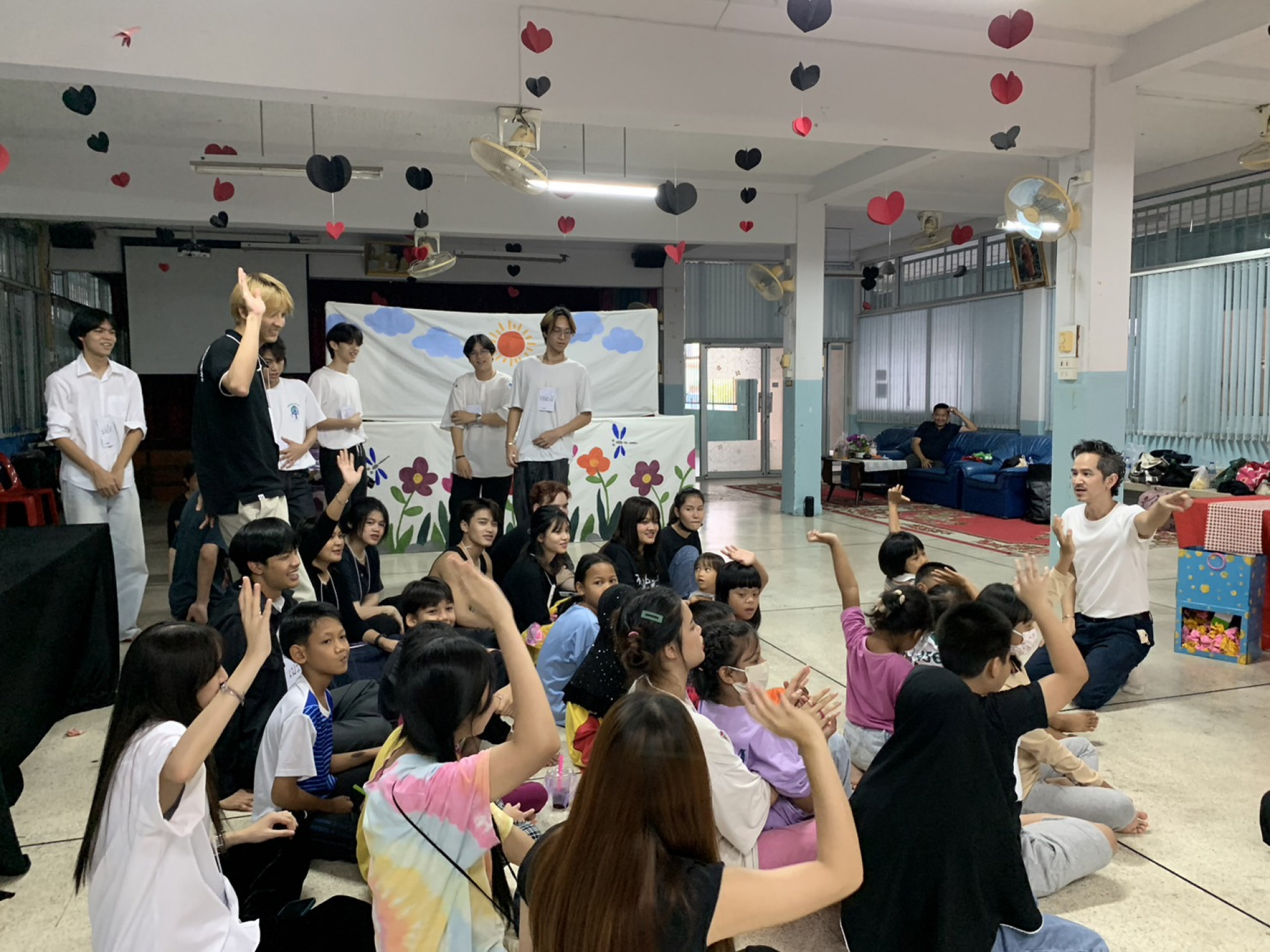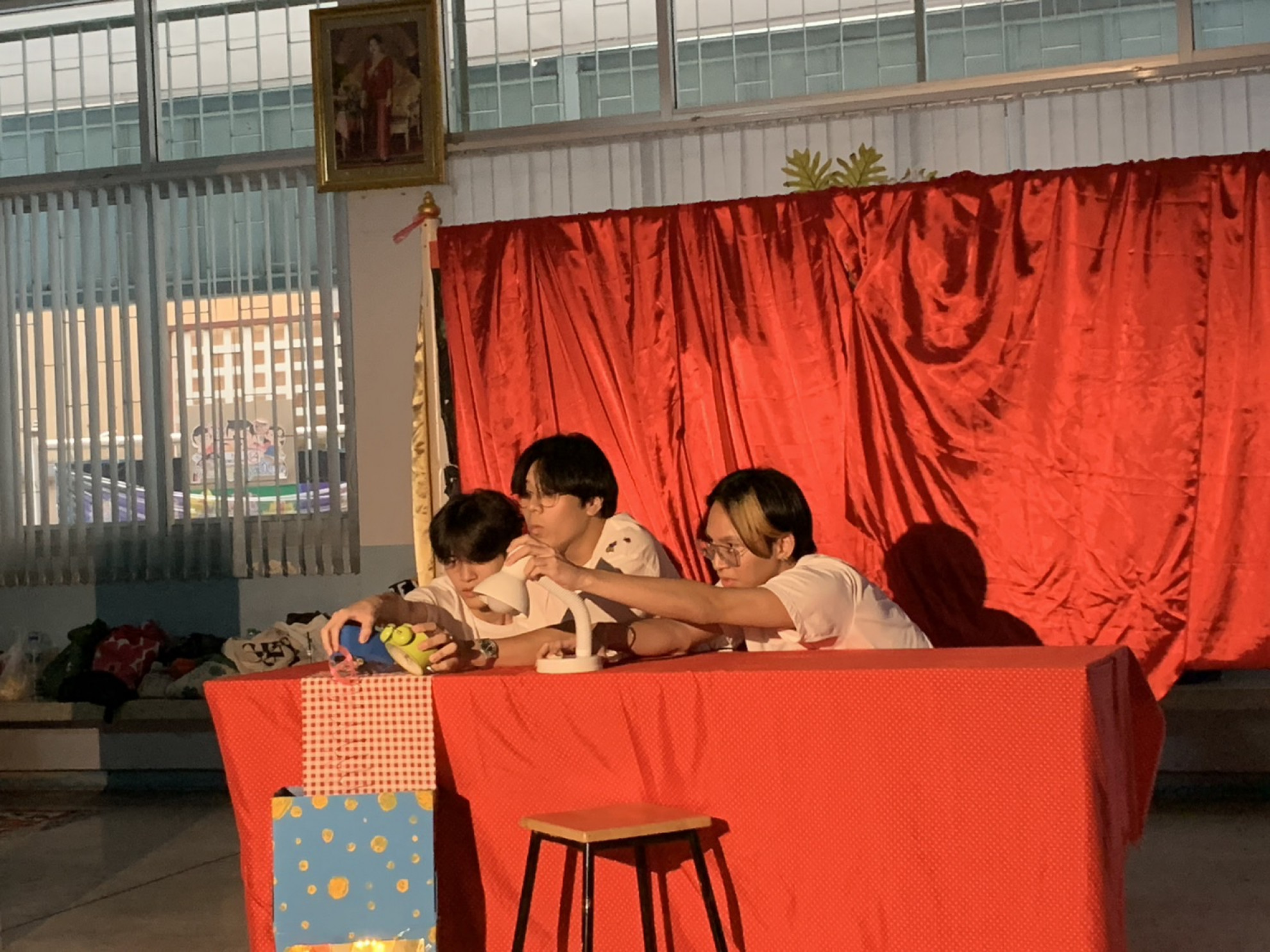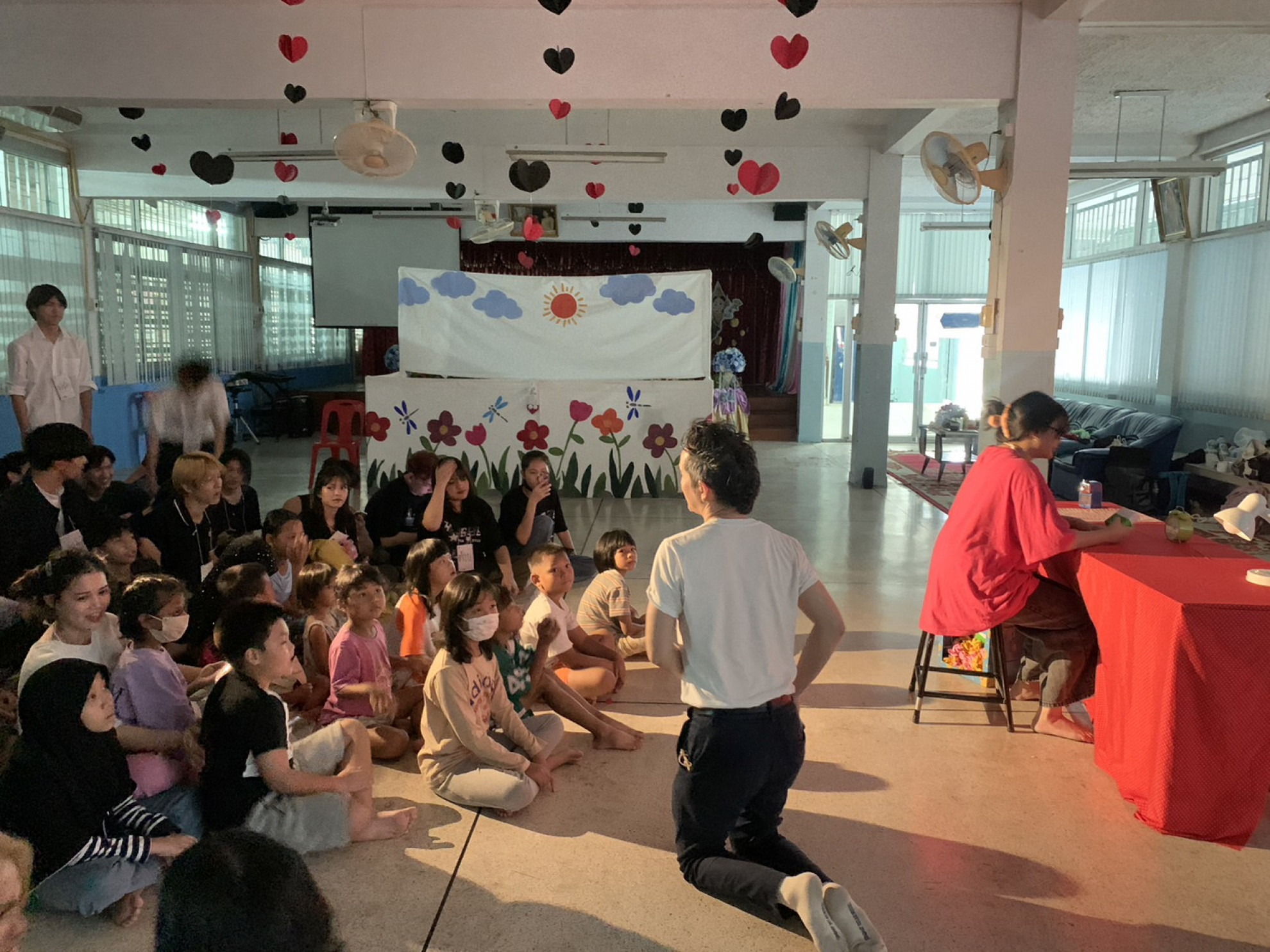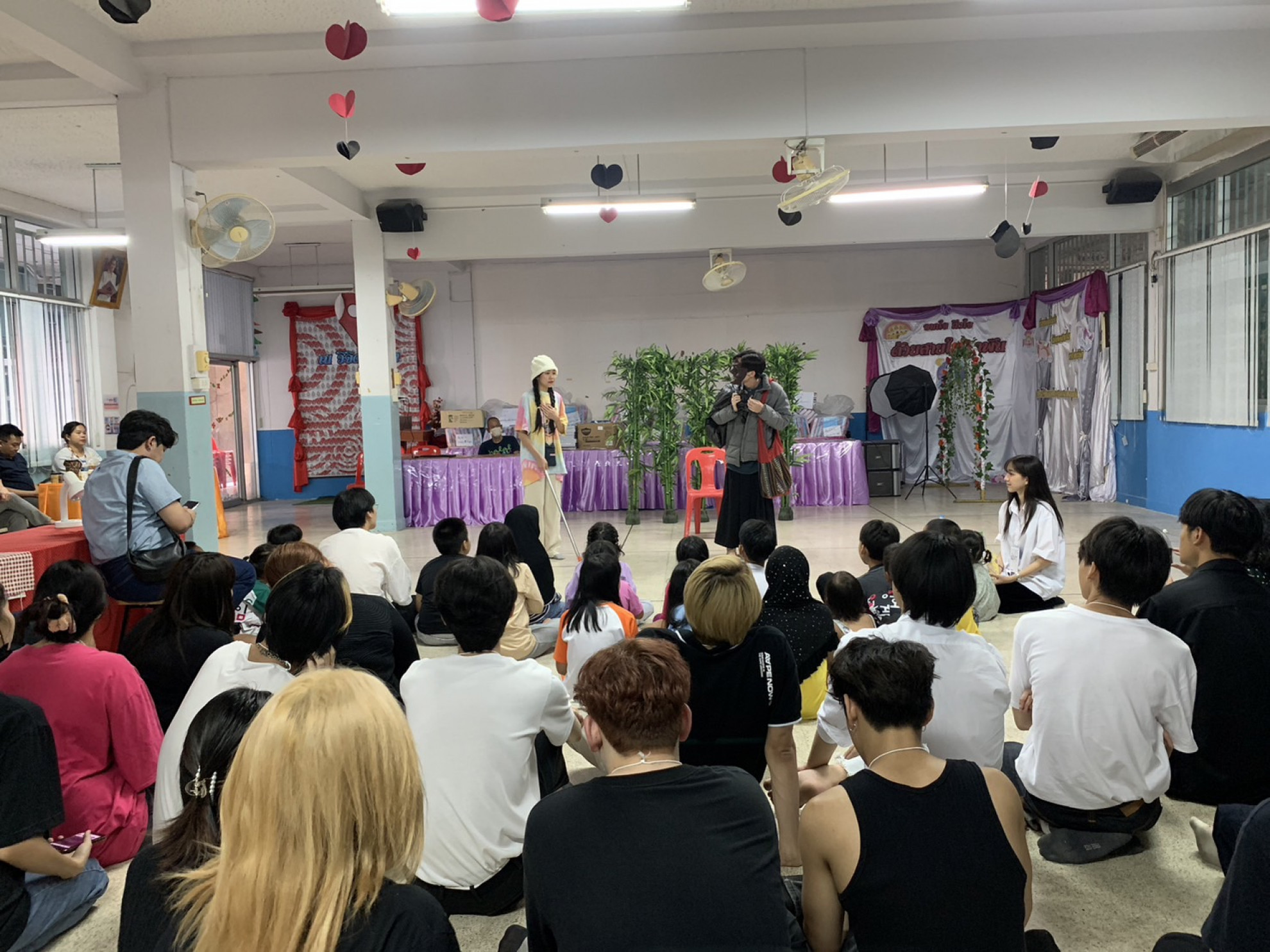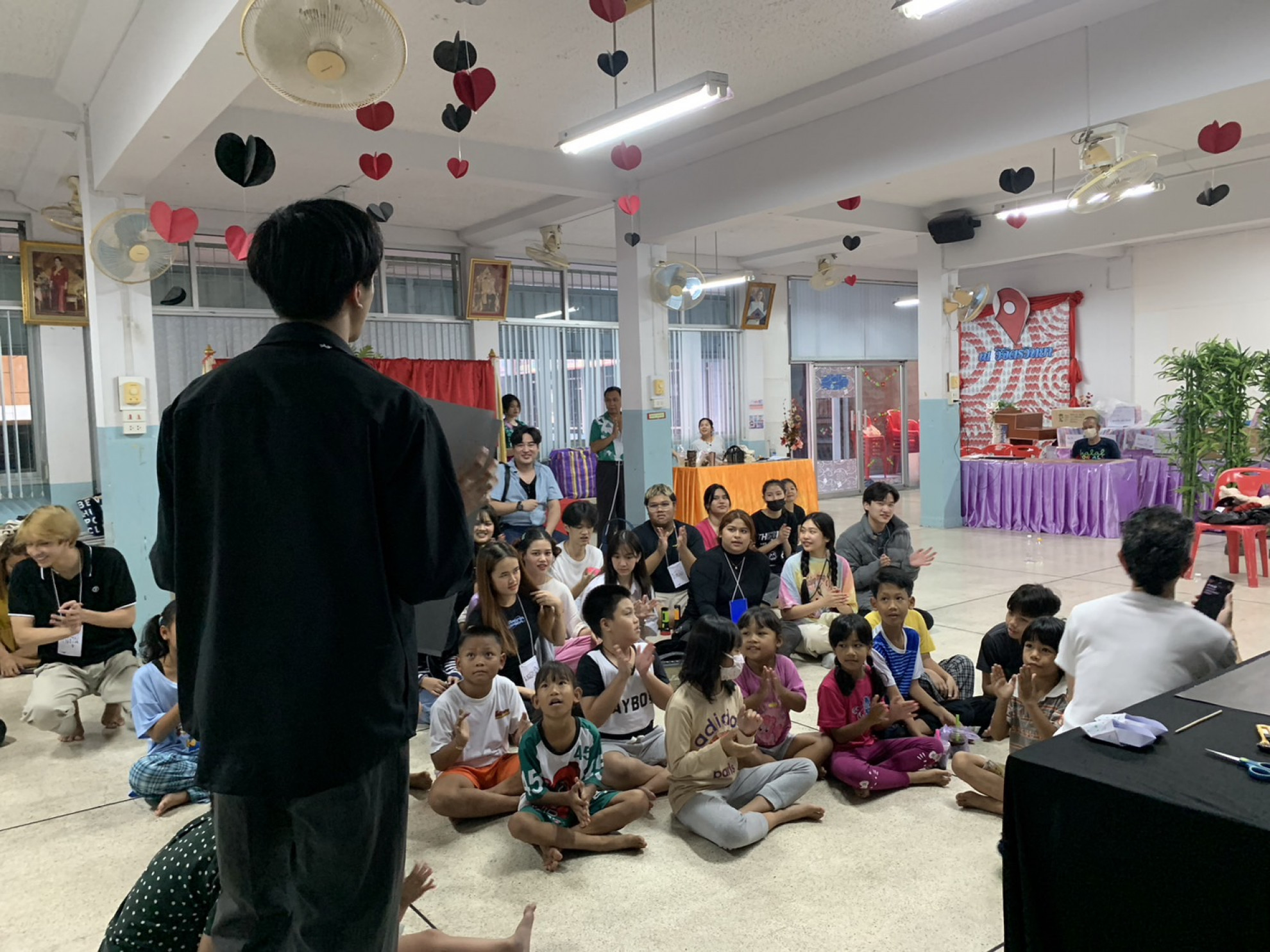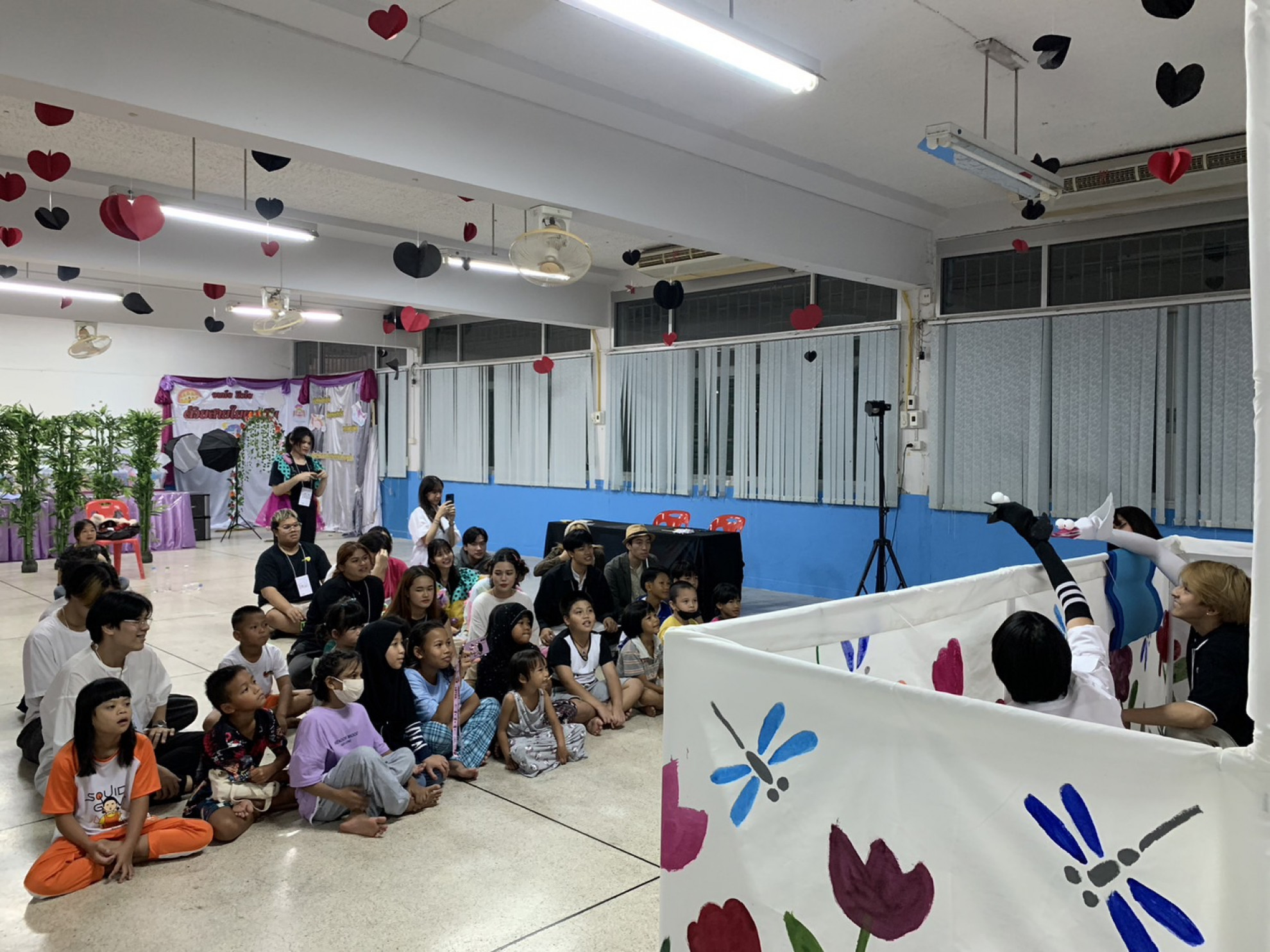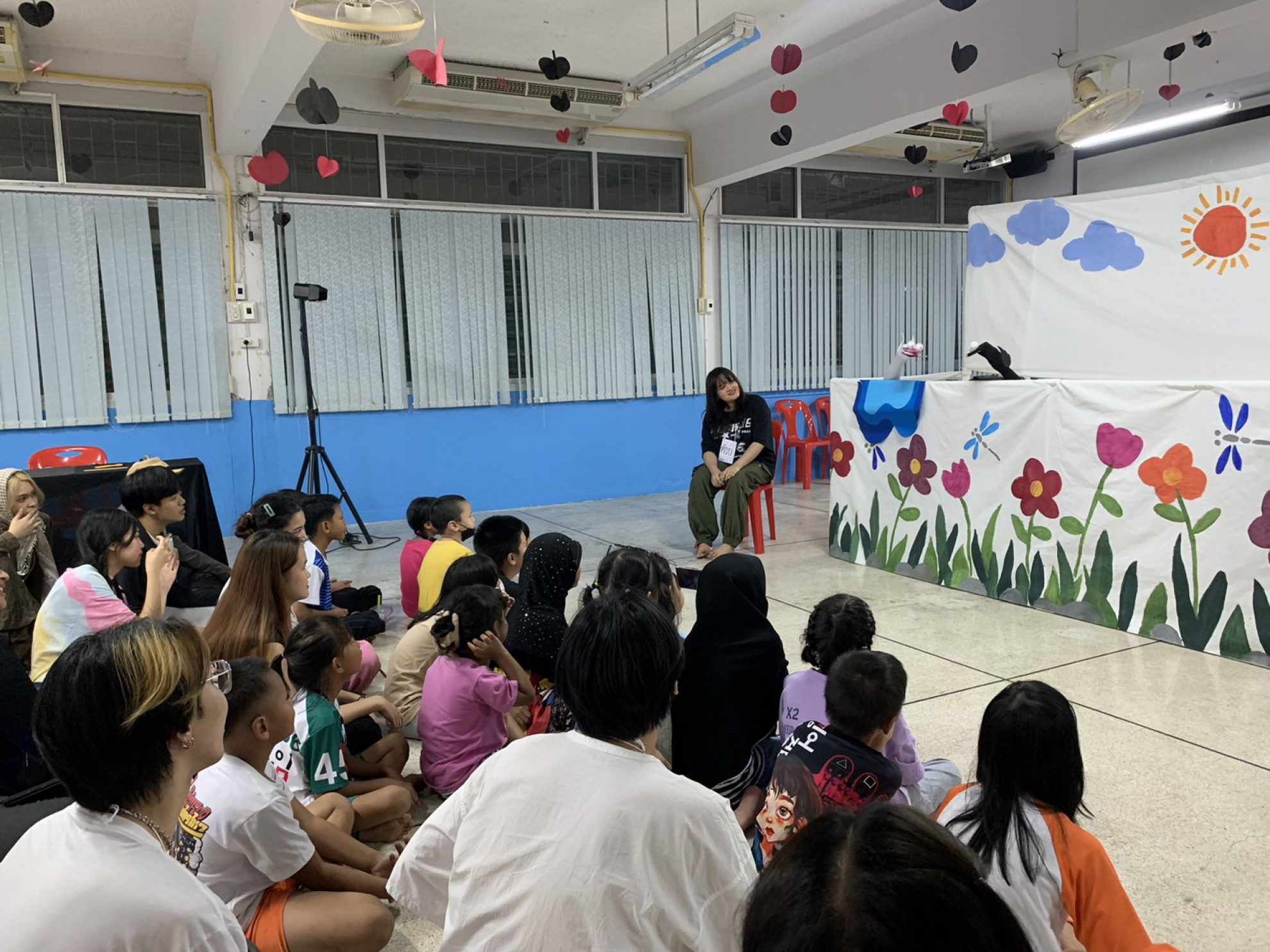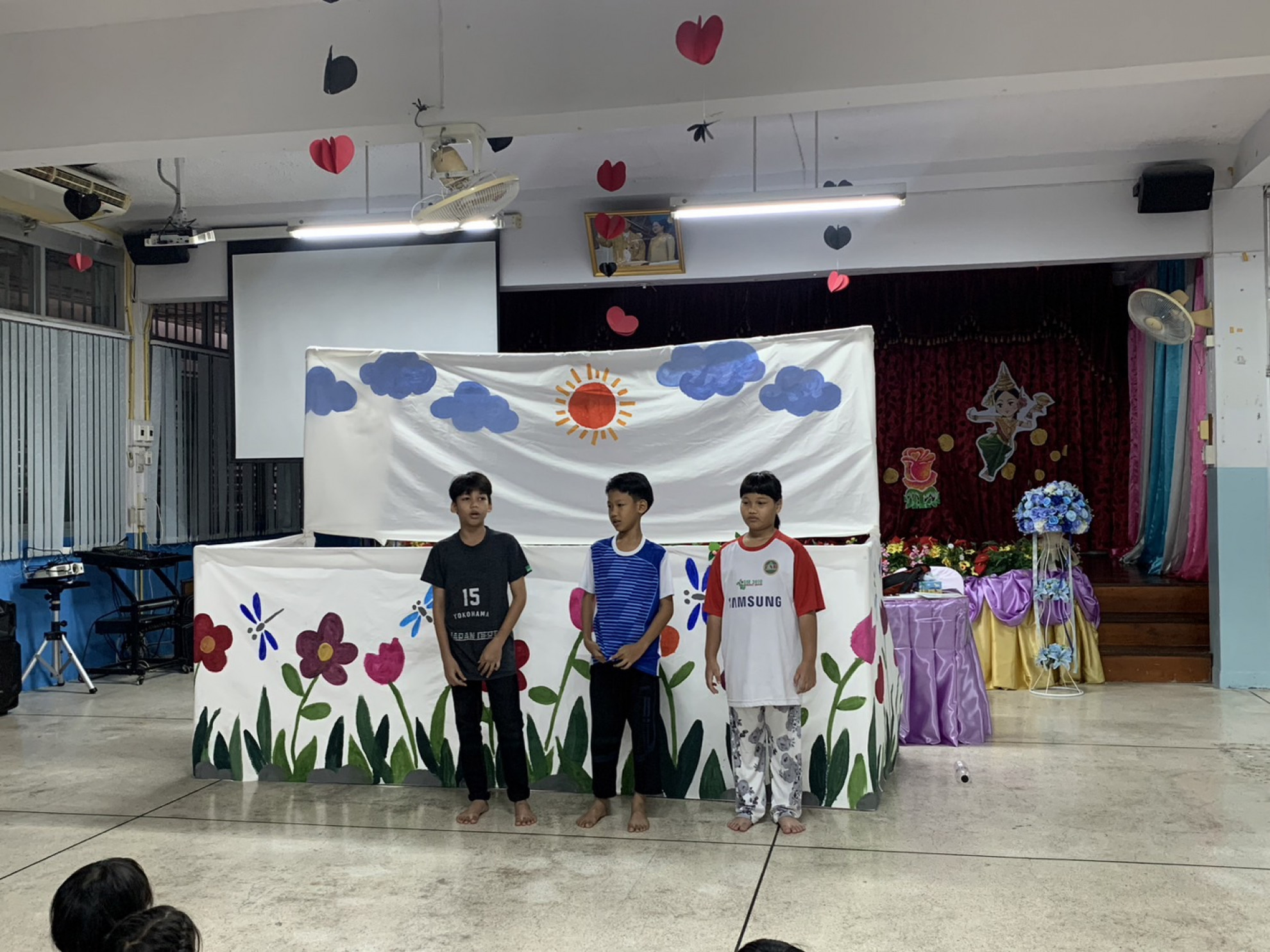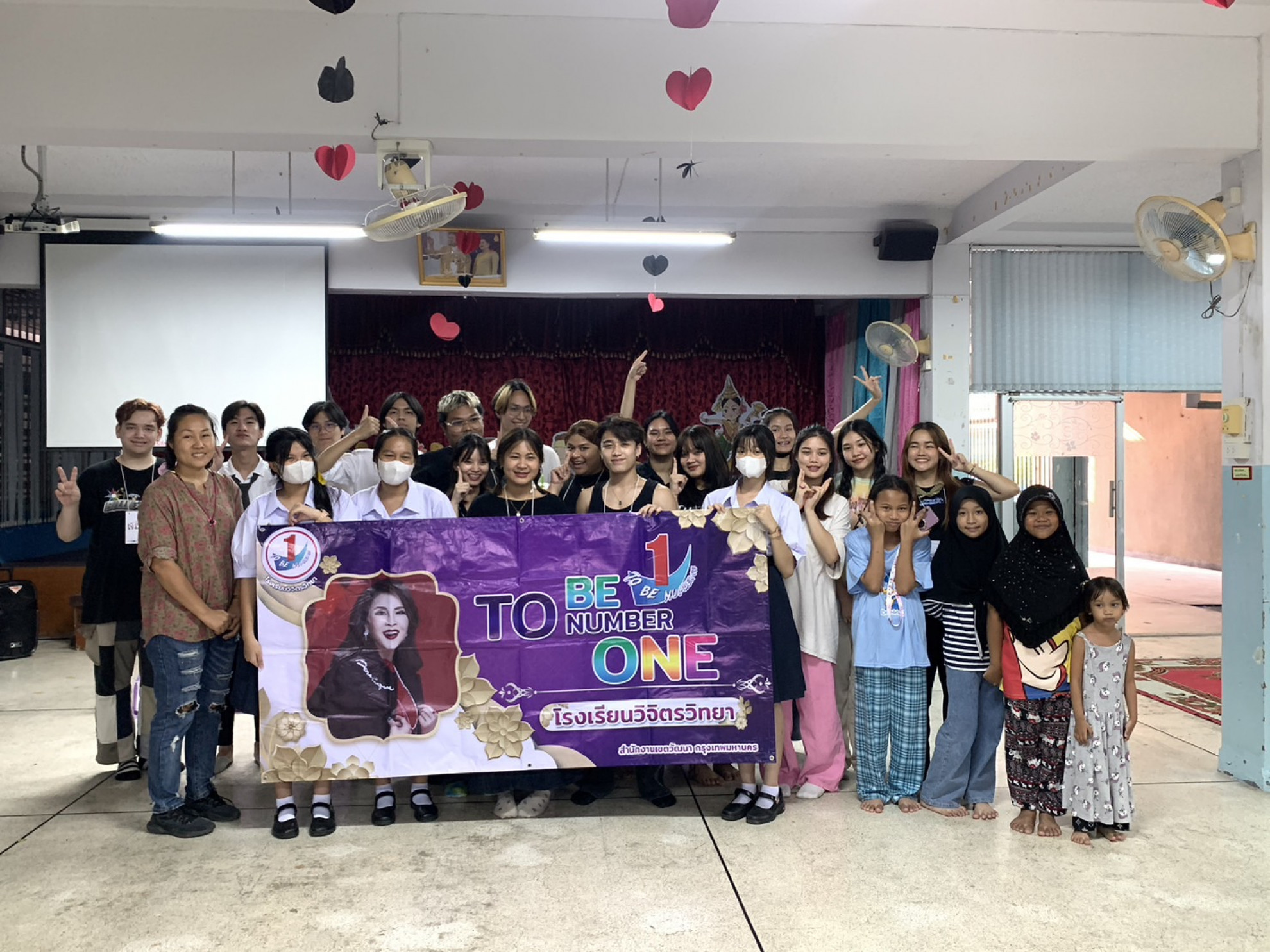





| Target | Indicator | Result |
|---|---|---|

SDG 3
GOOD HEALTH AND WELL-BEING
|
||
| 3.8 Achieve universal health coverage, including financial risk protection, access to quality essential health-care services and access to safe, effective, quality and affordable essential medicines and vaccines for all | 3.8.1 Coverage of essential health services (defined as the average coverage of essential services based on tracer interventions that include reproductive, maternal, newborn and child health, infectious diseases, non-communicable diseases and service capacity and access, among the general and the most disadvantaged population) | The "Saen Saeb Model" project, through its integration of Humanities (such as Fine Arts, Performing Arts, and Music) and Social Sciences (including Education and Educational Psychology), indirectly supports the coverage of essential health services by fostering community well-being, social resilience, and mental health. While the project primarily focuses on creative drama activities, it contributes to addressing critical aspects of health, particularly mental and emotional health, which are integral to the broader concept of essential health services. By engaging vulnerable populations, including youth and community members, in artistic and educational activities, the project enhances their social and emotional development, promoting mental well-being and social cohesion. These outcomes are particularly valuable in underserved communities, where access to mental health support and social services may be limited. The project's inclusive, participatory approach ensures that disadvantaged groups benefit from opportunities that foster empowerment, social support, and resilience, all of which are essential components of comprehensive health services, complementing efforts to address physical health issues such as maternal and child health, non-communicable diseases, and overall health access. Thus, the project contributes to creating a holistic environment that supports both individual and community health, aligning with the broader goals of improving service coverage and ensuring sustainable, inclusive development. |

SDG 4
QUALITY EDUCATION
|
||

SDG 4
QUALITY EDUCATION
|
||
| 4.3 By 2030, ensure equal access for all women and men to affordable and quality technical, vocational and tertiary education, including university | 4.3.1 Participation rate of youth and adults in formal and non-formal education and training in the previous 12 months, by sex | The outcomes of the "Saen Saeb Model" project directly relate to the participation rates of youth and adults in formal and non-formal education and training by illustrating a successful example of engagement in non-formal education. The project achieved high participation and satisfaction rates, with 100% of the target participants (74 individuals) actively involved in creative drama activities designed for children and youth. This mirrors trends in increasing participation in both formal and non-formal educational settings, as the project not only provided valuable learning opportunities but also empowered community members with new skills and knowledge. Furthermore, the project’s focus on both youth and adults, offering a platform for development, aligns with broader efforts to improve participation rates in education, contributing to the overall goal of enhancing community-driven learning and personal growth. |
| 4.7 By 2030, ensure that all learners acquire the knowledge and skills needed to promote sustainable development, including, among others, through education for sustainable development and sustainable lifestyles, human rights, gender equality, promotion of a culture of peace and non-violence, global citizenship and appreciation of cultural diversity and of culture's contribution to sustainable development | 4.7.1 Extent to which (i) global citizenship education and (ii) education for sustainable development, including gender equality and human rights, are mainstreamed at all levels in (a) national education policies; (b) curricula; (c) teacher education; and (d) student assessment | The "Saen Saeb Model" project aligns with the principles of global citizenship education and education for sustainable development by integrating values such as social responsibility, community development, and inclusive learning into its activities. By engaging students and community members in creative drama, the project fosters a deeper understanding of diverse social issues, encouraging empathy and critical thinking, key components of global citizenship education. Additionally, the project’s focus on the development of youth and adults in the Nualjit community through participatory, non-formal education contributes to the broader goals of sustainable development, including gender equality and human rights, by providing equal opportunities for all participants, regardless of background. Faculty and students involved in the project not only apply their knowledge to real-world issues but also contribute to building a curriculum that supports sustainable social and cultural development. This approach mirrors the incorporation of global citizenship and sustainable development into national education policies, curricula, teacher education, and student assessments, fostering a holistic and inclusive educational experience. |
To enhance students' potential in terms of knowledge and skills in creating creative drama for children and youth.
To integrate research work with academic service projects for society.
To provide beneficiaries of academic services with knowledge, insights, and benefits through creative drama training for children and youth.
To offer academic services to the community in the strategic areas of the Faculty of Fine and Applied Arts under the "Saen Saeb Model."
The Academic Service Project for Society (Saen Saeb Model)
Creative Drama Training for Youth integrates research with practical activities. It applies research findings to benefit the activities and teaching of the course FPA214 Theatre for Young Audiences, allowing students in the field of acting to understand the concepts and processes involved in creating theater works for children and youth. Students will gain practical experience in staging plays and organizing activities for young audiences. Furthermore, the project fosters cross-disciplinary integration between Humanities (including Fine Arts, Performing Arts, and Music) and Social Sciences (including Education and Educational Psychology). This connection ensures a tangible integration of academic service to society with teaching and research.
Youth Theater (Theatre for Young Audiences) serves as an important tool for communication, creating experiences, and fostering learning in children and youth through narratives, forms, and methods appropriate to the developmental stages and interests of different age groups. It facilitates learning about various life issues, promoting physical, cognitive, emotional, and social development. Therefore, youth theater plays a crucial role in nurturing human resources from a young age. It also serves as an academic service to the external community, fostering a sense of social responsibility through creative drama activities and performances.
Students gained knowledge and skills in creating creative drama for children and youth, with an achievement rate of 98.91%, meeting the goal.
Members of the Nualjit community gained knowledge, insights, and benefits from the creative drama activities for children and youth, with an achievement rate of 99.45%, meeting the goal.
Members of the Nualjit community expressed satisfaction with the academic services provided in the strategic areas of the Faculty of Fine and Applied Arts' "Saen Saeb Model," with an achievement rate of 97.56%, meeting the goal.
A total of 74 participants joined the project, representing 100% of the target, meeting the goal.
The development of Nualjit community members included gaining knowledge, insights, and benefits from the creative drama activities for children and youth, with 39 individuals benefiting from the project. Furthermore, those receiving academic services expressed satisfaction with the services provided in the strategic areas of the Faculty of Fine and Applied Arts' "Saen Saeb Model." Faculty members and students applied their knowledge and skills in delivering academic services, contributing to the development of participants, leading to positive outcomes. Faculty and students can use the results of this academic service as a foundation for further knowledge development and research to address issues that need improvement, ensuring sustainability, or creating innovations to enhance knowledge or skills in alignment with the university's strategic goals and policies.
This process also contributes to enhancing the capabilities of individuals in the field of Fine and Applied Arts, empowering them with the skills to further develop and promote community-driven initiatives that foster physical, emotional, and overall well-being, supporting continued growth and improvement within the community.
